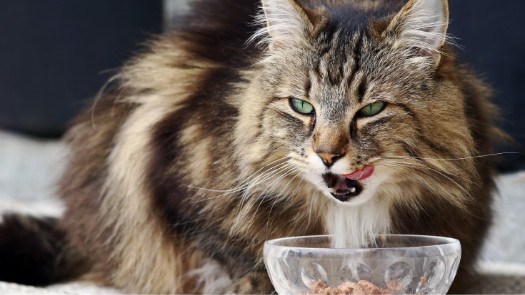pet food nutrient guide
Learn where all the nutrition comes from in cat or dog food.
Not all nutrients are equal. Every nutrient in your pet’s diet performs a slightly different function, all working together to support life.

Common nutrients in pet food (not complete)
- Bone for calcium, phosphorus, magnesium
- Corn for starch, fiber, essential amino acids
- Eggs for essential amino acids, vitamins
- Fish oil for fatty acids, EPA, DHA
- Liver for iron, cobalt, vitamins, folic acid
- Milk for carbohydrates, lysine, riboflavin
- Oily fish for iron, iodine, vitamin B12
- Poultry for fatty and amino acids
- Red meat for fatty and amino acids, phosphorus, and vitamins
- Soy for amino acids, lysine, or copper
Banfield’s guide to nutrients in pet food
Nutrients are any substance that a living creature’s body breaks down and uses to support life: including vitamins, minerals, carbohydrates, proteins, fats, water, and fiber.

A cheat sheet on basic nutrition for pets
Not all nutrients are created equal. Each nutrient in your pet’s diet performs a slightly different function, and pets of different species, sizes, and life stages have unique needs.
Critical carbohydrates

Dietary fiber

Fats (lipids)

Protein (amino acids)

Vitamins and minerals

Water
Want to remove the guesswork? Try quality commercial pet food!
Looking for a simple way to ensure your pet’s nutritional needs are met? One solution is using a quality commercial pet food (yes, really!) If your pet is receiving a complete and balanced quality commercial diet, your guesswork is done. Choices like protein sources, flavors, or wet or dry foods are entirely up to you and your pet.
Look for the Association of American Feed Control Officials (AAFCO) logo as well as the phrase “complete and balanced” on your pet food packaging. Manufacturers can only use this logo and wording if their formulation meets industry nutrition guidelines for pets.

Where do nutrients in pet food come from?
Nutrients in pet foods are seldom added in their pure form, but as a package deal inside more complex ingredients like animal proteins, corn, and grains.
Get to know some common nutritious pet food ingredients*
Please note that this list is by no means complete!
*Research provided by ROYAL CANIN®, a registered trademark of Royal Canin USA.
Bone meal
Minerals: Calcium, Phosphorus, Magnesium
Other nutrients: Glucosamine, Chondroitin
Corn meal or ground
Carbohydrates: Starch, Dietary fiber
Proteins: Amino acids, Essential amino acids
Minerals: Zinc, Manganese
Other nutrients: Carotenoid pigments
Eggs
Proteins: Amino acids, Essential amino acids, Sulfur amino acids
Vitamins: Vitamin A, Vitamin D, Vitamin E, Riboflavin, Pantothenic acid, Pyridoxine, Biotin, Choline, Inositol
Fish oil
Lipids: Fatty acids, Omega 3 fatty acids, EPA and DHA
Liver
Minerals: Iron, Cobalt
Vitamins: Vitamin A, Vitamin E, Vitamin K, Riboflavin, Vitamin B12, Biotin, Folic acid, Choline & Inositol
Meat
Lipids: Conjugated fatty acids
Proteins: Amino acids, Essential amino acids, Arginine, Glutamine, Lysine, Taurine, Branched chain amino acids, Carnitine
Minerals: Phosphorus, Iron, Copper, Selenium
Vitamins: Vitamin A, Vitamin K, Thiamine, Pantothenic acid, Pyridoxine, Vitamin B12, Niacin, Choline & Inositol
Milk
Carbohydrates: Sugars. Lipids: Conjugated fatty acids
Proteins: Sulfur amino acids, Lysine, Tyrosine
Vitamins: Vitamin A, Vitamin D, Riboflavin, Pantothenic acid
Mineral salts
Minerals: Calcium, Phosphorus, Potassium, Magnesium, Chelated trace elements, Zinc, Iron, Manganese, Copper, Selenium, Cobalt, Sodium polyphosphates, Potassium citrate
Fish
Proteins: Amino acids, Essential amino acids, Sulfur amino acids
Minerals: Iron, Iodine
Vitamins: Vitamin D, Pyridoxine, Vitamin B12, Niacin
Poultry
Lipids: Fatty acids, Omega 6 fatty acids
Proteins: Amino acids, Essential amino acids
Soy
Proteins: Amino acids, Essential amino acids, Lysine
Minerals: Copper
Wheat
Carbohydrates: Starch
Proteins: Essential amino acids
Minerals: Zinc, Manganese
Vitamins: Vitamin E, Thiamine, Niacin
Brewer’s Yeast
Carbohydrates: Dietary fiber, MOS
Vitamins: Thiamine, Riboflavin, Pyridoxine, Biotin, Folic acid
Plus, nutraceuticals (like antioxidants) deliver nutrition and other benefits
Some substances may deliver a little extra benefit on top of basic nutrition, like support for aging joints and healthy weight. Ask your veterinary team what we recommend for your individual pet’s age, breed, and need.Antioxidants: Antioxidants are sometimes used in pet food to prevent spoilage. They may also work on a cellular level to protect your pet from “free radicals,” as well as ultraviolet light, pollution, stress, and poor diet.
Chondroitin and Glucosamine: Chondroitin helps cartilage absorb impact in joints, and works with glucosamine to help create new cartilage, and is commonly found in New Zealand green mussel.
Because glucosamine helps protect joint cartilage and adds to its elasticity, it’s often recommended for older and bigger dogs with joint issues.
Curcumin: Curcumin, derived from turmeric, is an anti-inflammatory that can help heal skin wounds.
Zeolite: Zeolite, extracted from volcanic rock, can help boost healthy digestive systems, absorb extra water and toxins in your pet’s system, and even absorb calcium to help build stronger bones.

Need advice on flea control? Ping Pet Chat™!
Whether it's 3 a.m. or 3 p.m., connect with a real veterinary professional for immediate petcare advice. It's included in all Optimum Wellness Plans®!
Log in to start chattingHow Banfield can help with dog and cat diet and nutrition
What your pet eats can make a big difference to their health! Our vets can perform physical exams, run tests, and help you manage your pet’s food-related issues, including obesity, diabetes, and food allergies.

Get help managing pet food allergies. Do you think your pet’s immune system is reacting to certain ingredients in their food? We can help identify pet food allergies and work with you on management diets.
Does your pet have diabetes? Let’s work together! This includes everything from recommendations on what to feed your pet, how to manage their food and injection schedule, providing appropriate prescriptions, and showing you how to safely perform insulin injections for the pet you love.
We can help your pet reach a healthy weight. We've got advice on diet and exercise for both overweight and underweight pets. Does your pet have a mobility issue that makes it hard for them to exercise? We can help there, too.
 Mites and mange
Mites and mange Podcast - Not Just Fluff
Podcast - Not Just Fluff




